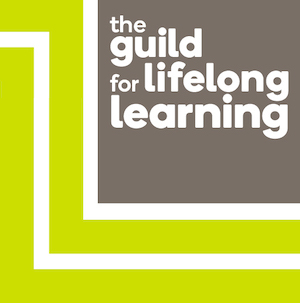2023-06-27
It takes only a modest level of German to have the courage to attend, enjoy and appreciate the German Film Club at the Guild
A great benefit of language learning is the opening of many windows into cultures other than our own. This can be through reading, travelling and participation in exchanges and common interests. At the German Film Club, we share a wealth of insights into German society and the German mindset. We are fortunate indeed to be led by our mentor, Janine Turner, whose understanding of Germany, knowledge and experience of German Films and infectious enthusiasm brings many absorbing experiences to the approximately 15 Film Club members.
With usually nine films selected for each year, we have viewed a wide variety of films: thrillers, documentaries, comedies and uncompromising re-examinations of Germany’s troubled history. This latter category is a most interesting part of the process in which German society has confronted its history thoroughly, particularly in the field of education. There are many examples of other countries with a troubled past, which have failed, to varying degrees, to do this and are less able to use past mistakes and tragedies to build a better future.
Approximately 25% of the films have had as an underlying theme the influence of the terrible 12 years of criminal national-socialist government on present day Germany. The earliest of these, “Die Mörder sind unter uns” (The murderers are among us) is an old-style black and white film, made in 1946, one of the very first to emerge from the recovering film studios in Berlin. “Der Staat gegen Fritz Bauer” (The state against Fritz Bauer) runs as a thriller but examines the compromised position of West-German society and government in the late 1950s, a time when the older generation were not yet ready to confront the past. It is based on the true story of Fritz Bauer, attorney general of the state of Hessen, trying to bring Nazi criminals to justice. “Je suis Karl”, made in 2021, underlines the continuing awareness and fear of right-wing extremism in Germany as a futuristic speculation about a youth-driven European-wide fascist movement.
We have also watched films which look back to the years of a divided Germany and life in East Germany. “Ballon” is the exciting story of one family’s efforts to escape to the west in a home-made hot-air balloon. “Das Schweigende Klassenzimmer” (The silent classroom) is set in an East German school in 1956, the time of the Hungarian uprising against Soviet-imposed communism.
We have also seen many fine films set in the past and future, many raising challenging themes, for example the challenges of immigration, being a refugee, and the questions thrown up about “KI” (Kunstliche Intelligenz – Artificial Intelligence) by a romantically-programmed robot! Other films have made us think about the present-day prison system, the problems of living with blindness, pressures within the education system and so on. We ended our most recent season on a high, with a wonderful comedy about the introduction of football to Germany from England, set in an ultra-conservative German school in 1874.
Language skills, however limited, and the opportunity to watch German films provide a fascinating insight into the culture of a great country. Since 2013, when the film society started, we have gained close on a hundred such insights.
Auf uns!
The article will appear in the autumn edition of Languages Today, thanks to John Nattress for writing a wonderful feature.
Back

